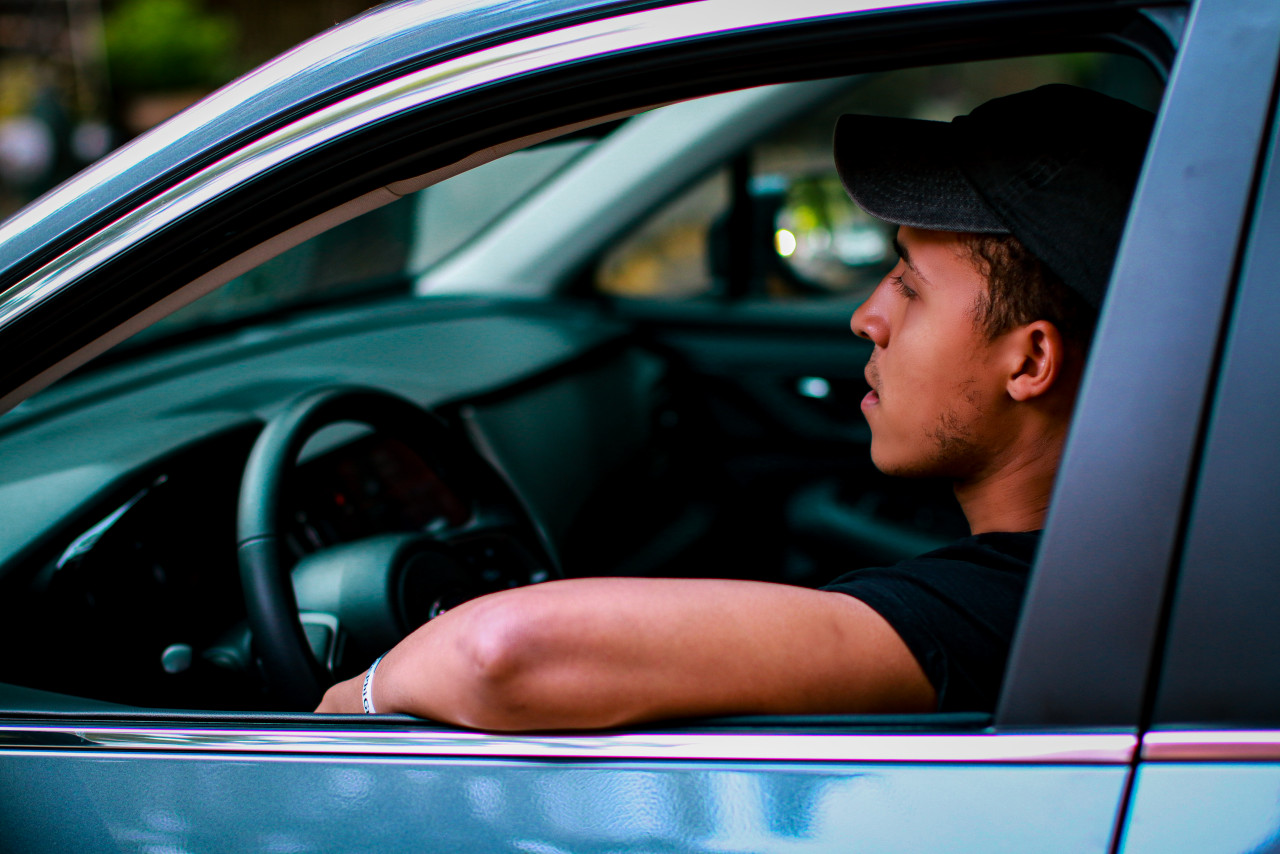He had picked her up from the motor park, she was coming in from another state.
On getting to her destination her potential host who was supposed to pay the fare was not available. She offered to take him to a hotel and pay in kind.
The Lagos-based Bolt driver narrating this experience told me this happened very often. But as a rider, I knew that riders have their own bad experiences, often more than drivers.
In a conversation with Times Live, Karabelo Lelosa from South Africa narrated his experience.
“Last year my girlfriend called a Bolt cab for me, using her account. When I got into the car, the guy told me he was expecting a woman so he could score a number. I was livid and told him off.”
He went on to talk about how he created a list for every woman to go through at least once a month to have an idea of which faces, what cars, what colours and number plates to look out for.
There have also been other people who have spoken up online about their bad experiences.
Endless complaints
If you search social media for Bolt or Uber you’d most likely see complaints, as is often the case for most other consumer brands.
The recurrent complaints about driver service of ride-hailing services like Uber and Bolt have been going on for a long time.
A recent popular incident was during the EndSARS protests where riders complained that Bolt drivers were aiding police to illegally capture and extort riders.
Bolt in response to these allegations stated that “it does not work with any agency to harm, intimidate or coerce, or exert fear of injury or cause the death of any member of its community.”
In a conversation with a driver about this issue, his explanation was that some of the drivers are also security officials using the platform as an alternative source of income.
More recently there were allegations on Twitter that Bolt chose to use influencers to push a different narrative, as opposed to addressing customers’ complaints.
In response to TechCabal’s questions on this issue, Bolt said it has a history of working with influencers.
Irrespective of the reasons given, there are still lingering fundamental questions such as, why are these complaints recurrent? And, most importantly, why are there more complaints about Bolt?
The back story
Ride-hailing companies Bolt and Uber occupy an increasingly important role in the transportation system of Lagos, Nigeria’s most commercial state. Bolt arrived in Nigeria in 2016 and is currently present in Lagos, Abuja, Ibadan, Owerri and Port-Harcourt.
The Estonian company has grown to become the biggest thorn in Uber’s flesh in Africa — maybe after regulators.
It has taken the path of using an expansion strategy that’s focused on not only operating in major cities across Africa, as Uber does, but expanding to smaller cities and now operates in more African cities than Uber.
But users have not always been fully confident in the quality of service these platforms provide from a safety and security standpoint. Women over time have spoken about being most vulnerable to drivers with a propensity for harassment.
Global estimates from Uber revealed that there were more than 100 reports of rape, and nearly 800 reports of non-consensual touching of a sexual body part, in the first half of 2019 alone.
Same drivers on different ride-hailing platforms
Due to easy portability, many drivers work for multiple ride-hailing platforms especially Bolt & Uber, switching between them based on preference.
Since this is the case, why is the experience different for passengers if the drivers are mostly the same?
To answer this let’s go back to the year 2016, there’s a new ride-hailing service in town: Taxify (now Bolt). It’s looking to gain traction in the Nigerian market, which Uber currently controls.
In order to gain a foothold in the market, it has to reduce friction in acquiring customers — riders and drivers, whilst also incentivizing sign-ups via discounts and massive promos.
But this reduction in friction also comes with inevitable trade-offs.
Gbenro Ogundipe, a long time driver partner, told me about his experience when Bolt came into the market.
“When they came in, their entire selling point was that joining was easier than Uber.”
“The problem is they don’t hold the same standards as Uber. I know Uber later relaxed their standards because they were losing all their drivers to Bolt but it’s still not the same. In the old days we used to do a psychometric test before you could drive on Uber, they didn’t do that on Bolt. So as long as you can drive and you can bring basic documentation you’re let in,” Ogundipe said.
A lower barrier to entry or a faster onboarding process for drivers might mean that some misfits are let in.
It’s the same for any other company, ‘hiring’ is an art and science that requires painstaking effort to get right. Multiple drivers I spoke to have said that it is fairly easier to be onboarded on Bolt than Uber.
And since both ride-hailing companies do not share information between each other on disciplinary matters, drivers ejected from one platform easily join another, starting over on a clean slate.
As per Uber’s Safety report, Uber’s background-check process is very rigorous. During 2017 and 2018, more than one million prospective drivers did not make it through it’s screening process
Gbenro Ogundipe speaking on drivers leaving Uber to join Bolt said,
“It became such that every driver that got suspended, Uber used to suspend people a lot. Some of us didn’t want to go to certain places so we cancelled such requests. And for cancelling too much, you get suspended. A lot of people would just say, their wahala [problem] is too much and they’d go to join Bolt.”
“A number of drivers that I know of, but I don’t know personally, had incidents whereUber flagged and sent them off but Bolt welcomed them with open hands…even though Uber doesn’t do some of these things again, we still get a sense that because of cost and its International market, Uber is still more refined than Bolt.”
Also, in terms of incentivizing user’s behaviour, taking a relaxed approach towards letting riders cancel trips without repercussions has its drawbacks.
Riders who wait longer than 5 minutes before cancelling a trip on Uber, pay a fine of ₦500 ($1.1), while on Bolt there’s no charge for this.
This implies as a driver told me, that riders who are likely to cancel use Bolt.
Another driver told me that, “People who use Uber tend to be more serious because they know they’d be charged for this.”
TechCabal reached out to Bolt to get its comments on what steps it’s taking to address these complaints, in response Bolt said it’s introducing the following features and processes for the convenience and peace of mind of its riders:
- Integrating a real-time biometric driver verification solution as an additional layer of technology on rides.
- Completing the upgrade of its support systems and increasing service agents to respond to rider and driver concerns more rapidly and with better quality.
- Launching a continuous state-wide driver retraining and re-education programme.
- Increasing the minimum quality benchmark for drivers.
Can this problem be solved?
Ride-hailing companies are faced with a human problem; riders and drivers are humans with flaws.
It’s inevitable that there’d be clashes, however, these negative experiences can be reduced by improving the screening process and adjusting the rider experience to reward the type of behaviours they want to see.
These increasing recurrent complaints over the years are a clear writing on the wall that the strategy that got Bolt here, won’t keep them.





















